The United States is an enormously wealthy country. In 2015, total household wealth stood at $71.3 trillion.
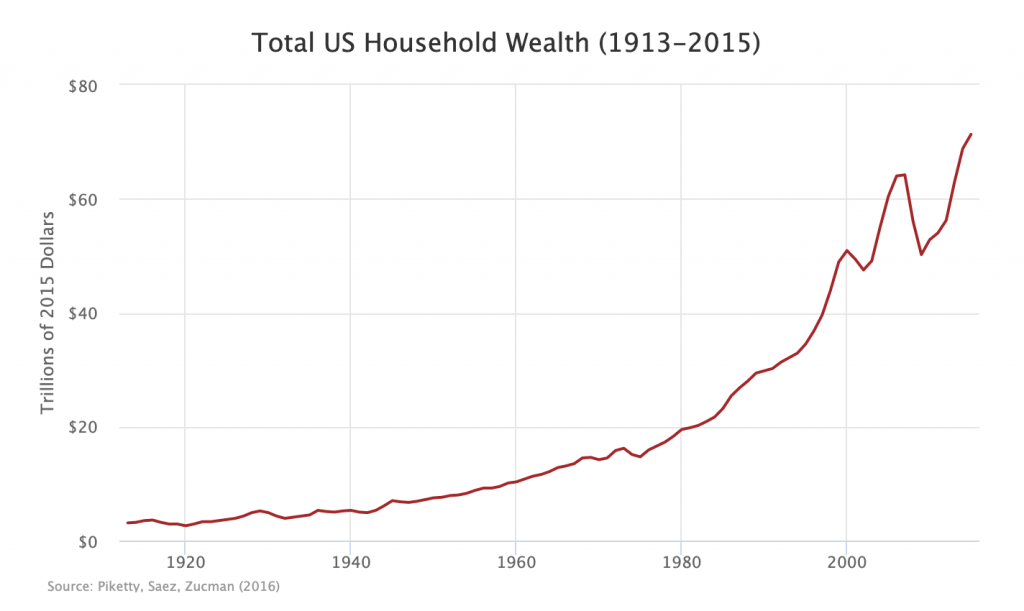
This is equal to $220,000 per person, or $880,000 for every family of four, if the wealth was distributed evenly throughout society.
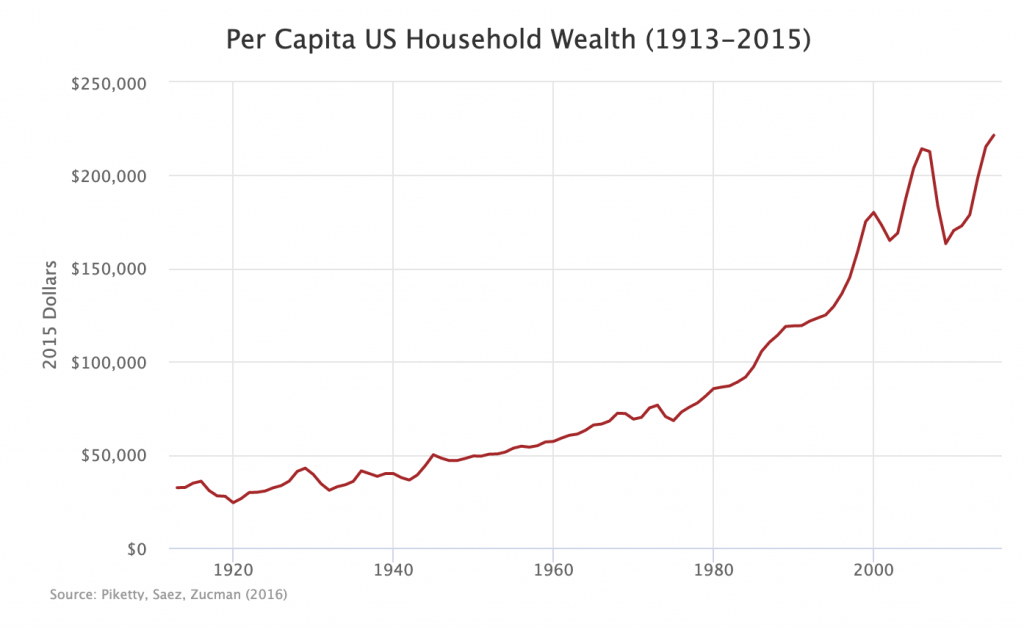
The owners of this wealth, or capital, capture around 30 percent of the income produced by the country every year. This income flows to them, not because they work for it, but merely because they own income-generating assets like real estate, equity, and debt. In 2015, total US capital income was around $4.8 trillion.
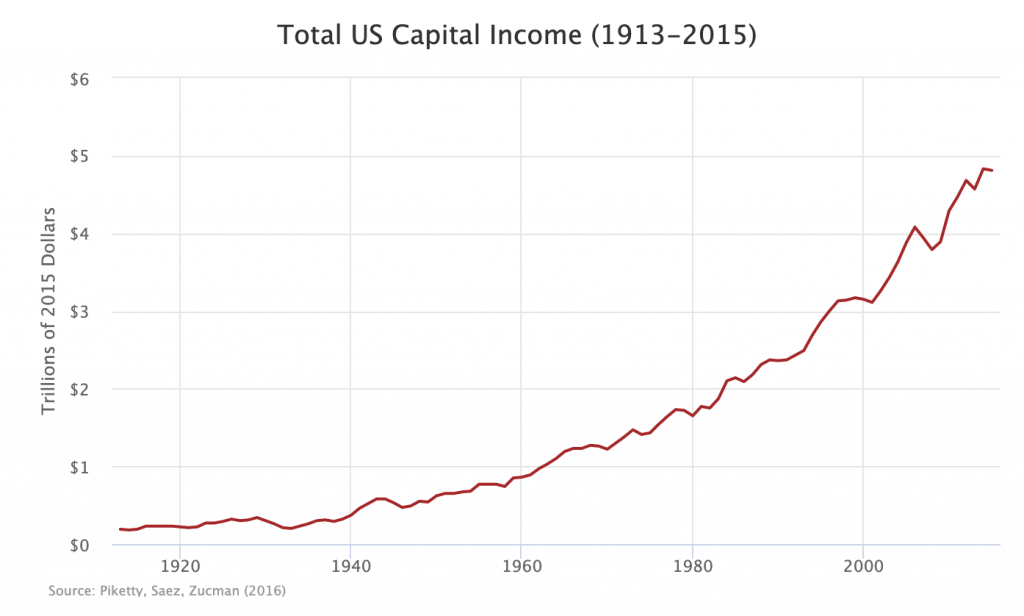
If this unearned portion of the national income was distributed equally to every individual in society, then each person would receive around $15,000 of income per year in addition to whatever else they receive from working. For a family of four, this dividend alone would bring their household income to $60,000 per year.
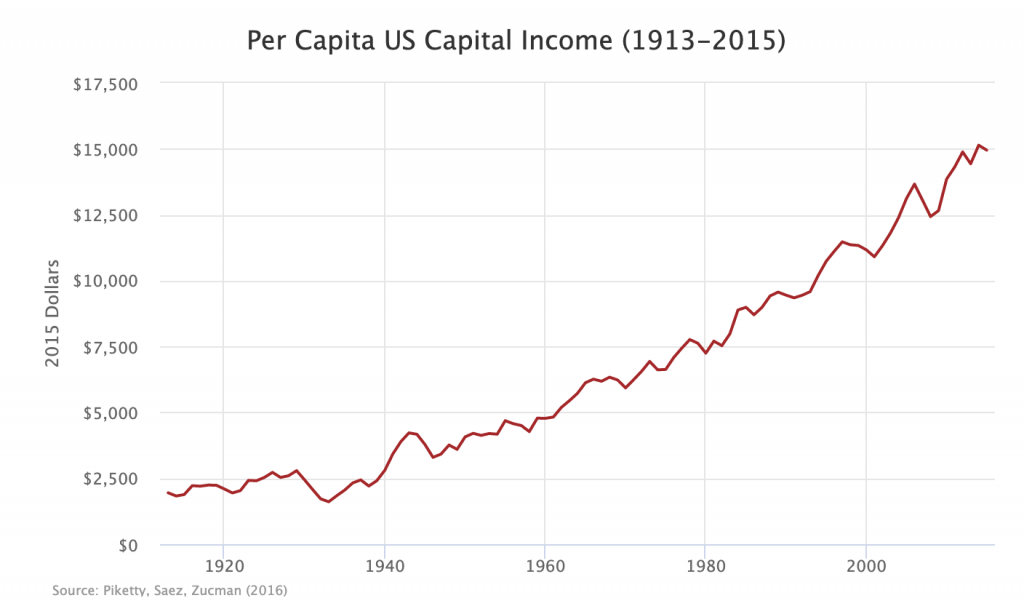
The problem is that wealth and capital income are not distributed evenly. In 2014, the average wealth of the bottom half was $349. For the top one percent, it was over $16 million.
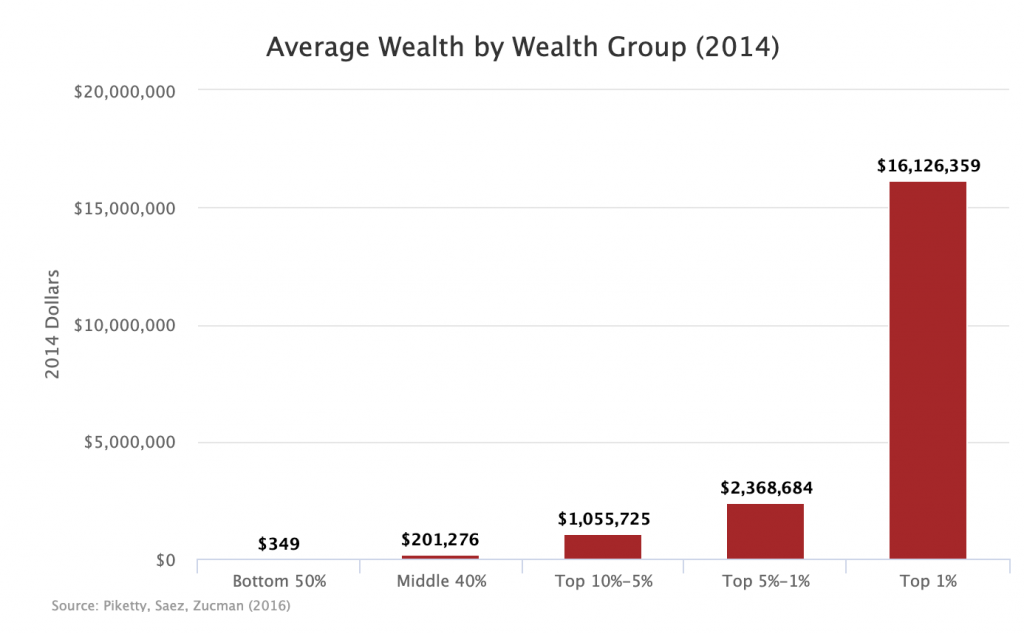
This extraordinarily unequal distribution of wealth causes the nation’s capital income to also be distributed in a very uneven manner. In 2014, the bottom half had an average capital income of $826. For the top one percent, it was over $750,000.
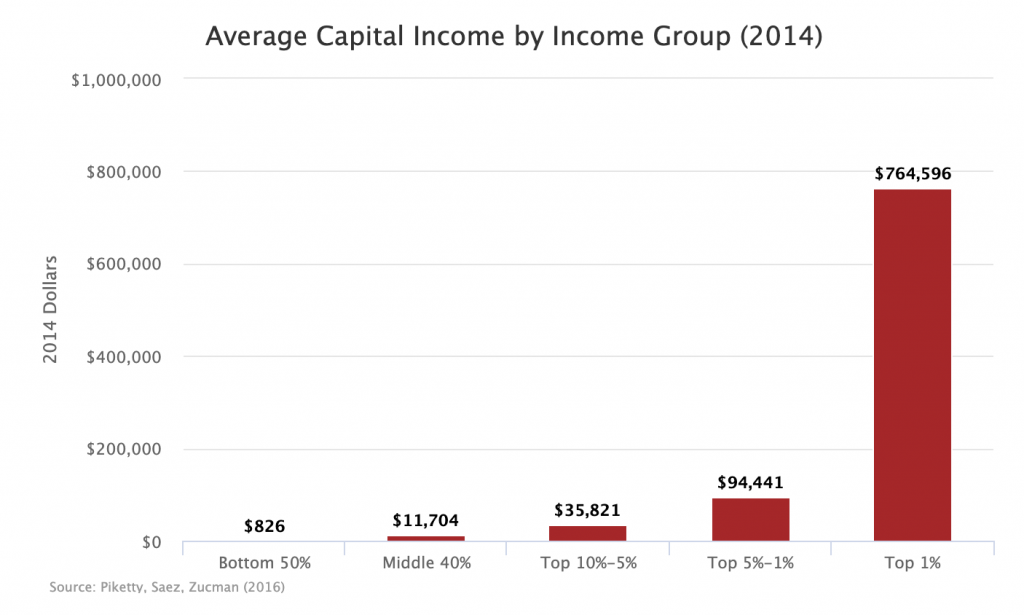
Rich people in our society don’t just have high capital income levels. They also have high capital income shares. That is, a large portion of the income collected at the top of our society comes from capital rather than from labor. In 2014, just 5.1 percent of the bottom half’s income came from capital. For the top one percent, around 58.9 percent of income came from capital.
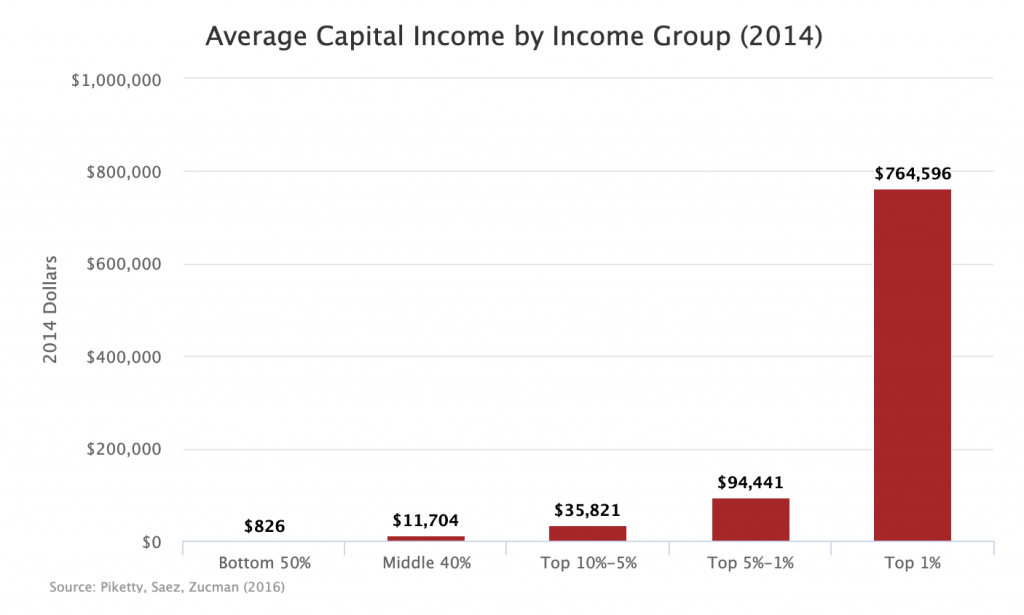
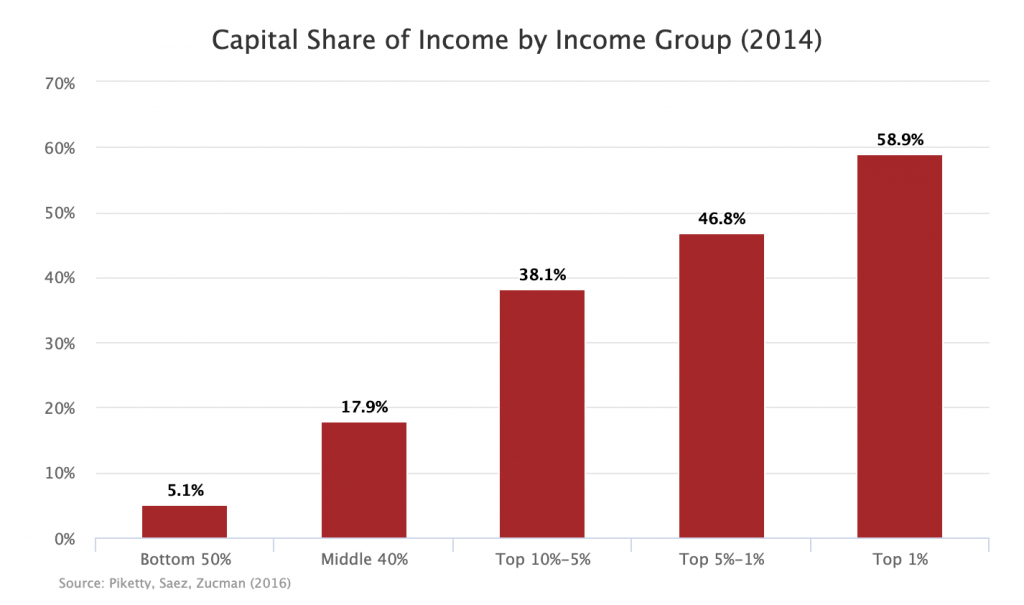
It is worth emphasizing just how much income at the top of society comes from passive ownership of investments rather than from working. The top 0.01 percent of individuals in society have an average income of $28 million. Three-fourths of that income, or $21 million, came from capital in 2014.
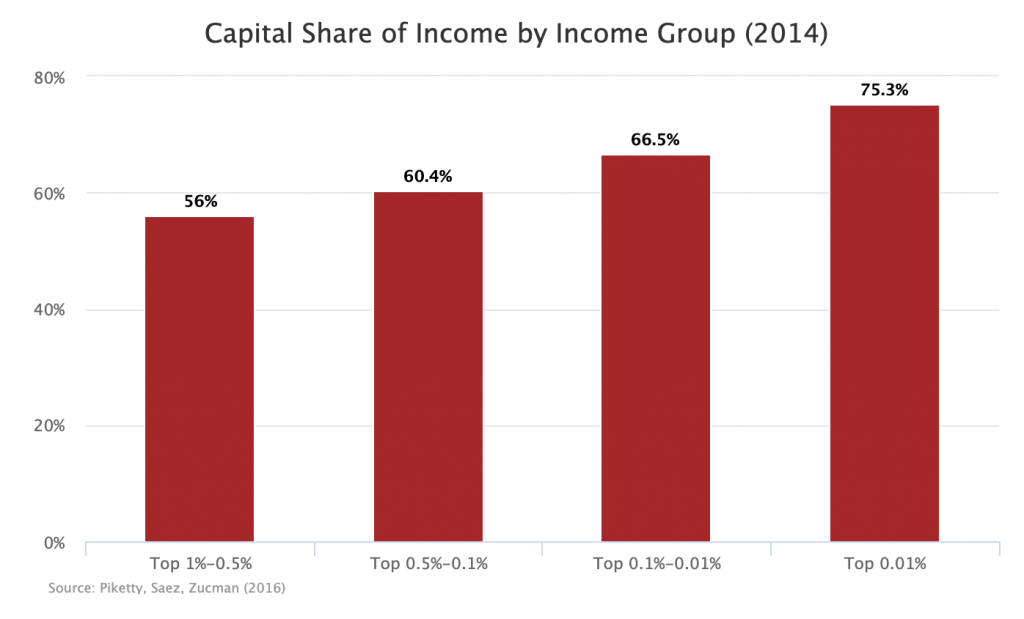
If we want to get serious about creating a fair and egalitarian society, we must confront capital directly. Wage levels are important. Benefit levels are important. But getting those things right will not be enough so long as nearly one-third of the national income flows out passively to a handful of people at the top of society.
Current liberal efforts to tackle wealth inequality are woefully inadequate. Policies aimed at building the assets of low-income families, the typical approach to this issue, rarely succeed on their own terms and, even if they did succeed, would only be an insignificant drop in the bucket. For wealth and capital income to become more fairly distributed throughout society, the ownership of existing assets must be reordered towards that end.

